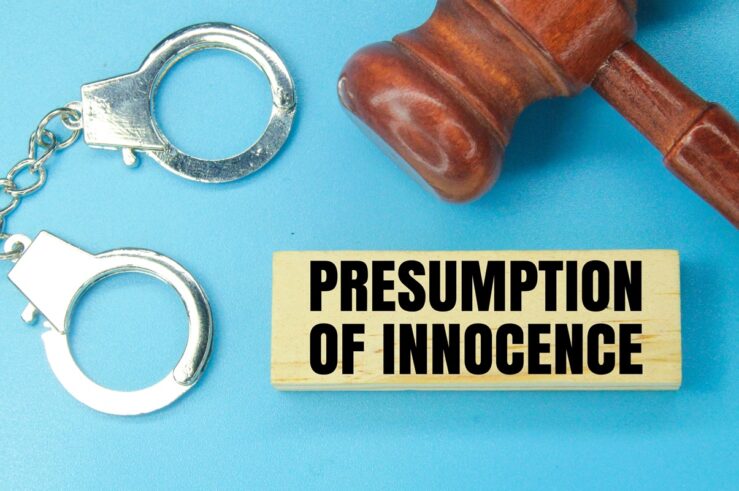Showing results for: “digital markets act”
Intermediaries: The Hero We Need?
In policy discussions about the digital economy, a background assumption that frequently underlies the discourse is that intermediaries and centralization always and only serve as a cost to consumers, and to society more generally. Thus, one commonly sees arguments that consumers would be better off if they could freely combine products from different trading partners. ... Intermediaries: The Hero We Need?
Why the Supreme Court’s Aereo Decision Protects Creators Without Endangering the Cloud
Yesterday, the Supreme Court released its much-awaited decision in ABC v. Aereo. The Court reversed the Second Circuit, holding that Aereo directly infringed the copyrights of broadcast television program owners by publicly performing their works without permission. Justice Breyer, who wrote the opinion for the Court, was joined by five other Justices, including Chief Justice ... Why the Supreme Court’s Aereo Decision Protects Creators Without Endangering the Cloud
FTC v Amgen: The Economics of Bundled Discounts, Part Two
The Federal Trade Commission (FTC) recently announced that it would sue to block Amgen’s proposed $27.8 billion acquisition of Horizon Therapeutics. The challenge represents a landmark in the history of pharmaceutical-industry antitrust enforcement, as the industry has largely been given license to engage in permissive mergers and acquisitions of smaller companies without challenge. In Part One, ... FTC v Amgen: The Economics of Bundled Discounts, Part Two
The Third Circuit’s Oberdorf v. Amazon opinion offers a good approach to reining in the worst abuses of Section 230
[Note: A group of 50 academics and 27 organizations, including both myself and ICLE, recently released a statement of principles for lawmakers to consider in discussions of Section 230.] In a remarkable ruling issued earlier this month, the Third Circuit Court of Appeals held in Oberdorf v. Amazon that, under Pennsylvania products liability law, Amazon ... The Third Circuit’s Oberdorf v. Amazon opinion offers a good approach to reining in the worst abuses of Section 230
The Covidien/Newport Merger: Killer Acquisition or Just a Killer Story?
[TOTM: The following is part of a blog series by TOTM guests and authors on the law, economics, and policy of the ongoing COVID-19 pandemic. The entire series of posts is available here. This post is authored by Geoffrey A. Manne, (President, ICLE; Distinguished Fellow, Northwestern University Center on Law, Business, and Economics); and Dirk Auer, (Senior Fellow ... The Covidien/Newport Merger: Killer Acquisition or Just a Killer Story?
Trimming the Sails of the Administrative State
In the wake of the recent OIO decision, separation of powers issues should be at the forefront of everyone’s mind. In reaching its decision, the DC Circuit relied upon Chevron to justify its extreme deference to the FCC. The court held, for instance, that Our job is to ensure that an agency has acted “within ... Trimming the Sails of the Administrative State
An ambitious AG, a disgruntled competitor, and the contrived antitrust case against Google in Missouri
The populists are on the march, and as the 2018 campaign season gets rolling we’re witnessing more examples of political opportunism bolstered by economic illiteracy aimed at increasingly unpopular big tech firms. The latest example comes in the form of a new investigation of Google opened by Missouri’s Attorney General, Josh Hawley. Mr. Hawley — ... An ambitious AG, a disgruntled competitor, and the contrived antitrust case against Google in Missouri
Acknowledging the Limitations of the FTC’s “PAE” Study
[Below is an excellent essay by Devlin Hartline that was first posted at the Center for the Protection of Intellectual Property blog last week, and I’m sharing it here.] ACKNOWLEDGING THE LIMITATIONS OF THE FTC’S “PAE” STUDY By Devlin Hartline The FTC’s long-awaited case study of patent assertion entities (PAEs) is expected to be released this spring. ... Acknowledging the Limitations of the FTC’s “PAE” Study
Rules Without Reason
In his July Executive Order, President Joe Biden called on the Federal Trade Commission (FTC) to consider making a series of rules under its purported authority to regulate “unfair methods of competition.”[1] Chair Lina Khan has previously voiced her support for doing so.[2] My view is that the Commission has no such rulemaking powers, and ... Rules Without Reason
How Changing Section 230 Could Disrupt Insurance Markets
In recent years, a diverse cross-section of advocates and politicians have leveled criticisms at Section 230 of the Communications Decency Act and its grant of legal immunity to interactive computer services. Proposed legislative changes to the law have been put forward by both Republicans and Democrats. It remains unclear whether Congress (or the courts) will ... How Changing Section 230 Could Disrupt Insurance Markets
The DMA’s Missing Presumption of Innocence
The EU’s Digital Markets Act (DMA) will come into effect March 7, forcing a handful of digital platforms to change their market conduct in some unprecedented ways. The law effectively judges them guilty (with a very limited, formalistic trial), and brands them “gatekeepers” based purely on size. It then sentences them to far-reaching, one-size-fits-all antitrust-style ... The DMA’s Missing Presumption of Innocence
The Antitrust Case Against Google’s Adtech Business, Explained
This week the Senate will hold a hearing into potential anticompetitive conduct by Google in its display advertising business—the “stack” of products that it offers to advertisers seeking to place display ads on third-party websites. It is also widely reported that the Department of Justice is preparing a lawsuit against Google that will likely include ... The Antitrust Case Against Google’s Adtech Business, Explained









